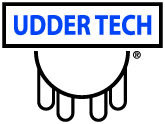The International Agency for Research on Cancer (IARC), the cancer agency of the WHO, released its report Monday.
The IARC and its 22-member panel classified red meat as “probably carcinogenic to humans, based on limited evidence that the consumption of red meat causes cancer in humans and strong mechanistic evidence supporting a carcinogenic effect.”
Processed meat was classified as carcinogenic to humans “based on sufficient evidence in humans” that consumption led to colorectal cancer, according to a WHO press release (PDF, 42KB).
The study claims it found “each 50 gram portion of processed meat eaten daily increases the risk of colorectal cancer by 18 percent.”
Explaining the study
The study’s reference to red meat includes beef, veal, pork, lamb, mutton, horse and goat meat, and terms its carcinogenic risk in Group 2A.
Processed meats are meats that are salted, cured, fermented, smoked or go through flavor-enhancing processes. Examples include hot dogs, ham, sausage, corned beef and beef jerky. They are classified under the carcinogenic list Group 1.
The IARC classifies on a scale of 1 (carcinogenic to humans) to 4 (probably not carcinogenic to humans). It has studied a variety of foods and products, ranging from fried foods, alcohol and tobacco, to paint, asbestos, cell phones and pesticides.
The classifications 2A and 2B have been described as “take care” classifications that do not predict cancer risks, but link them as possible. Group 3 is for foods or products that cannot be classified until more data is gathered.
In a Q&A document posted online by the IARC (PDF, 51KB), the agency said the red meat classification is based on limited evidence, meaning “that a positive association has been observed between exposure to the agent and cancer, but that other explanations for the observations (technically termed chance, bias or confounding) could not be ruled out.”
Countering views
“For an individual, the risk of developing colorectal cancer because of their consumption of processed meat remains small, but this risk increases with the amount of meat consumed,” said Dr. Kurt Straif of the IARC Monographs Program. “In view of the large number of people who consume processed meat, the global impact on cancer incidence is of public health importance.”
The agency took only a slightly lesser aggressive stance against red meat, citing the fact that many countries use lean meat as a staple to a healthy diet.
“These findings further support current public health recommendations to limit intake of meat,” said Dr. Christopher Wild, director of IARC. “At the same time, red meat has nutritional value. Therefore, these results are important in enabling governments and international regulatory agencies to conduct risk assessments, in order to balance the risks and benefits of eating red meat and processed meat, and to provide the best possible dietary recommendations.”
But officials for red meat production groups, in addition to other medical groups, are countering the WHO study as inconclusive. Dr. Shalene McNeil, a nutrition scientist and registered dietitian for the National Cattlemen’s Beef Association, said the IARC could not reach a consensus agreement and instead went with a majority agreement in its monograph study.
“Cancer is a complex disease that even the best and brightest minds don’t fully understand,” she said in a statement released Monday by the Beef Checkoff. “Billions of dollars have been spent on studies all over the world, and no single food has ever been proven to cause or cure cancer. The opinion by the IARC committee to list red meat as a probable carcinogen does not change that fact. The available scientific evidence simply does not support a causal relationship between red or processed meat and any type of cancer.”
Dr. Dominik Alexander, an epidemiologist who conducted meta-analysis this year in the Journal of the American College of Nutrition, weighing the balance between red meat intake and colorectal cancer risks, says a “constellation of factors” are connected to cancer risk, including age, genetics, obesity, lack of physical activity, alcohol, smoking and career and socioeconomic factors.
“The bottom line is the epidemiologic science on red meat consumption and cancer is best described as weak associations and an evidence base that has weakened over time,” Alexander says. “And most importantly, because red meat is consumed in the context of hundreds of other foods and is correlated with other behavioral factors, it is not valid to conclude red meat is an independent cause of cancer.”
The Q&A posted by the IARC also said certain types of high-temperature cooking, such as barbecuing or pan-frying, may “generate compounds that may contribute to carcinogenic risk,” but added there isn’t enough data to determine if cooking methods actually increase risks.
The same document asks whether processed meats, classified as a Group 1 risk, are as dangerous as smoking and asbestos, two items also found in Group 1.
“No, processed meat has been classified in the same category as causes of cancer such as tobacco smoking and asbestos (IARC Group 1, carcinogenic to humans), but this does not mean that they are all equally dangerous. The IARC classifications describe the strength of the scientific evidence about an agent being a cause of cancer, rather than assessing the level of risk.” ![]()








